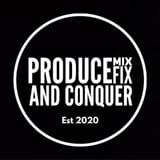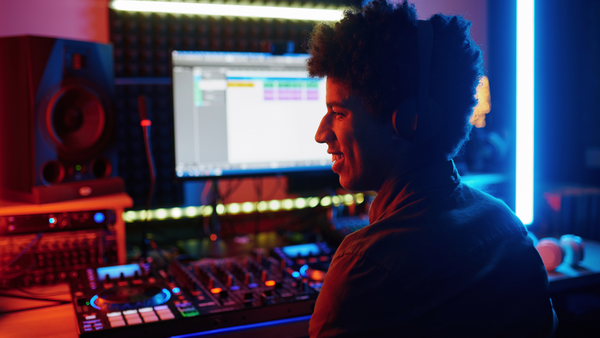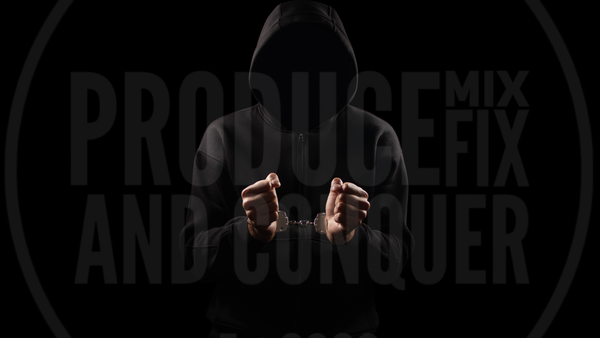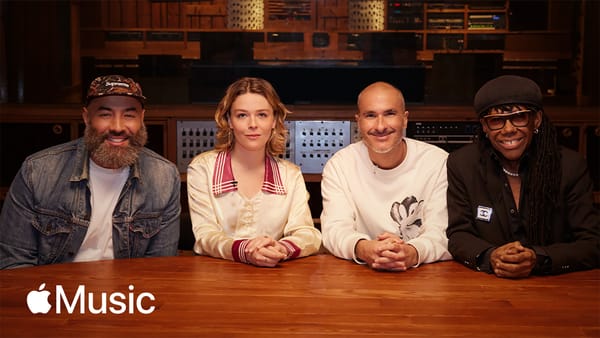Getting the Vibe - By Bob St John
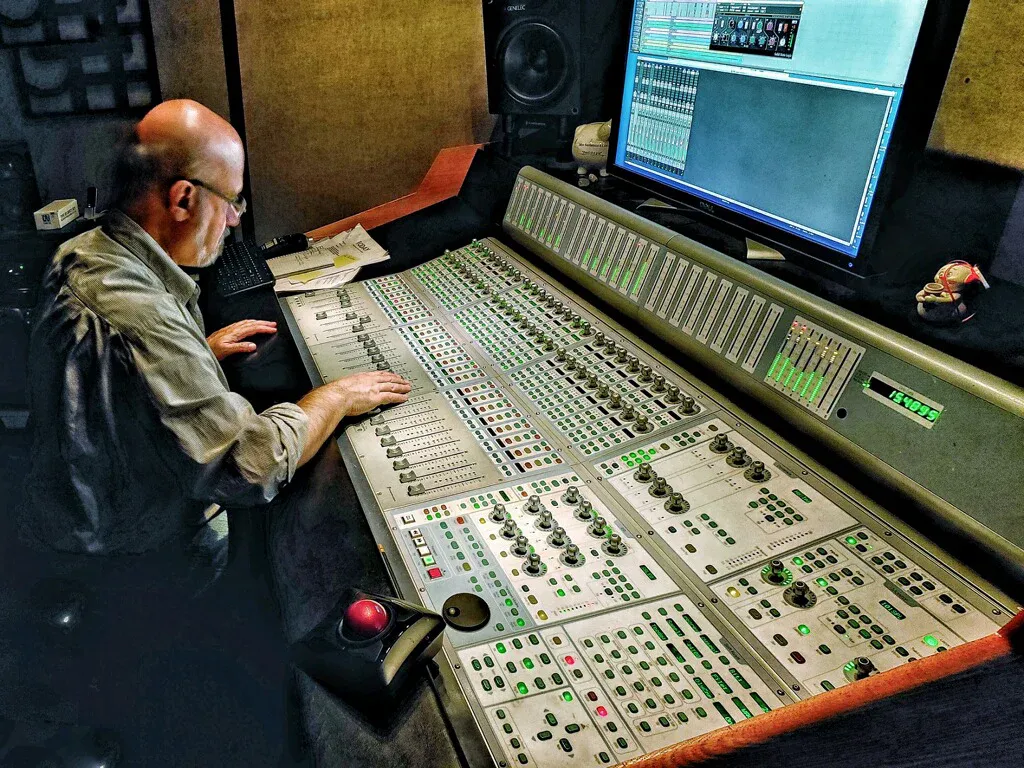
As recording engineers…in the purest sense…we are documenters of the moment. We are…like photographers…capturing an intangible that you can only listen to…that you can’t really hold…that you can’t see. Yet, when done properly…it can appeal to even the most non-musical soul…on a level that they can’t qualify. On many levels…we are like directors…looking at the entire scene from the control room. And like a director…helping guide a performance…helping mold the raw materials, so to speak.

Artists…in the best of circumstances, put 100% of their trust in us. And what we do…isn’t only getting it recorded. for they trust that we will do it right, that the recording will be usable. They look to us for guidance…they look to us for encouragement. You see…what we do, involves psychology and being able to read the energy in the room. We need to connect with the artist…and put them into a comfort zone. And these things…will ultimately define the performance. For not everyone is comfortable in the sterile environment of the studio.
So that…is left up to us. For as great as all of the technology is? It’s worthless without great music and great performances. There are so many books, YouTube videos ,tik-tok etc…and for me, one of the major defining qualities is that they near NEVER deal with the psychology of running a session with a bunch of sometimes tempestuous creatives…all with different ideas and agenda. Now…if you’re recording yourself at home…you don’t have this issue. However, if you are either recording friends to learn the art and skills of engineering, or you are working a session for money…this takes on a new meaning.

It’s spoken of so rarely, but much of what we do as engineers IS psychology. Yes…you should know the job…the basic skills you need to have (knowing gain staging, microphones and how to record someone without unwanted distortion or issues). But beyond that? You are dealing with real creative artists…sometimes with strong opinions, or with a major inferiority complex. Knowing how to manage them…make them feel comfortable in the studio (which is, for most an incredibly unfamiliar, cold and clinical environment) will not only allow you to get great performances, but if you do it right? You’ll have a client for life.
But you also need to have/learn an innate sense of musicality. Know what is a good performance in both timing and pitch…and know what your artist is capable of, i.e. where to draw the line in re-performing something to the point of diminishing returns…and what is a reasonably usable/fixable performance when it isn’t perfect musically, but feels good as a performance.
Fun personal fact: MANY of my clients have been working with me for 20+ years. And as a personal note? I am always thrilled to discover, that when they may work with another engineer…but always come back, they are more appreciative than before, for they DO know the difference. It’s most vindicating…

(PDQ Studios, February 2020. Shad's "A Cruel Void" sessions)
Getting to know an artist…their music, past and present and showing a genuine, positive interest (read: don’t trash their other projects because you didn’t work on them, even if you think they suck) showing this respect and knowledge of their art goes a long way towards developing a relationship and musical rapport together. Patience, kindness and empathy…with your ear on getting a quality performance are of utmost importance. You need to always be aware of the performance curve…especially with people inexperienced with working in what is, a sterile environment. And most of all…record everything. This isn’t like the old days of analog…although even THEN I was recording everything. Sometimes…the best performances aren’t the ones that are musically and technically perfect…but the takes where the musician isn’t “thinking” about being perfect. In so much recording…and making composites of takes, no matter what the instrument…I’ll find that there is always something in those earlier performances that are usable and unique. Take notes, playlist the take, and keep moving.
Also…important. KNOW your craft. Don’t make musicians wait for you to figure things out…you should be a facilitator, and not a time drain. One of the things I learned recording Nuno Bettencourt with Extreme…was how to get great guitar sounds, and do it fast (side note: it’s really about knowing your microphones and which ones work for you; with extreme, it was near always a 57/87 or 67 combo or ribbon mic (extreme II was a fostex ribbon mic)

(NRG Studios, October 2007 (Extreme's "Saudades De Rock" sessions)
when you know how these microphones work for you, and the typical placement you like…it is actually quite simple (as long as the guitar player has a sound they like coming out of the amp)
Nuno has little patience for watching me fiddle with mics for an hour…and I’ve generally got 15 minutes from pulling up a channel on a mic preamp to starting to record. Often…I got sounds while he was just fiddling around on his guitar.
I’ve taken this concept to near every facet of recording. again…know your gear…know what works for you…and get the mics up and ready to listen to, just while the musicians are warming up. The less time you spend just sitting around…the more comfortable everyone in the room will be that they can trust you, your ears and know that you know your craft.
And the faster you get recording? The fresher the performances will be. also…don’t waste time to make money. While this may give you a temporary boost, if clients sense this, they won’t be back. I’ve known plenty of engineers who loved to “run up the clock” on a session...it’s just so…uncool. Case in point: I had a client who needed to record a Hammond B3 track for a song. Now, I was the 3rd engineer he had worked with on the project, so I had no idea what preceded me. He called me up and said “I’ll book 5 hours…” So..I said “…just how MANY songs are we recording?” “One…” he stated. Evidently, the previous engineer would simply wholesale waste time, to drive up his billing and the studio’s. So, I showed up for the session half an hour early, got the mics up on the Leslie 122 cabinet (87’s down below and KM 84’s up top), got the sounds up, and waited for the client. He walked in and said “I’ll go get a drink while you set up…” I informed him we were set up, and ready for him to record. “What? Let me hear it…you can’t possibly be ready…” He went out, did a take, and came in to listen. He was delighted, confused and ultimately angry when he realized how much time he wasted with the other engineer. Then we were stuck with 4 hours to use. Well..I DID warn him……………

You see, that ultimately? When you create trust between you and your client? You’ll be the lucky benefactor of this, for in it’s purest sense? Artists will come to share a sacred trust with you. I have known engineers, who, in all seriousness…I wouldn’t trust to mix a chocolate shake. BUT…they were great tracking engineers…because they knew their craft, knew their gear…and MOST of all…made sure that the musicians were having fun. Believe me…you can listen to a record and FEEL the stress in the performance…when it is a bunch of unhappy people banging at their instruments in a room. But the inverse…is an absolute joy to capture…and listen to.
Because establishing that “vibe” on the session…is positively paramount to getting the best capture of the moment from the musicians…
And in the end? Capturing the moment IS what we’re all about…yes? Like a magnificent aural photograph…

